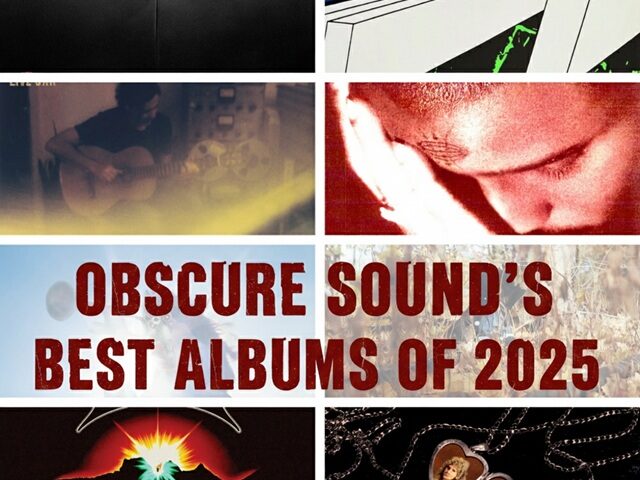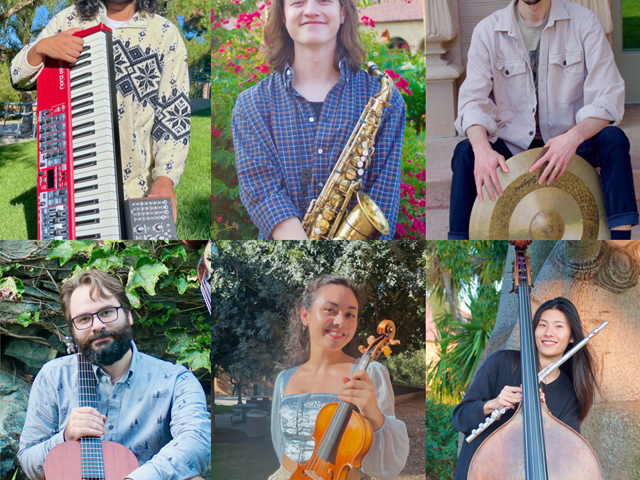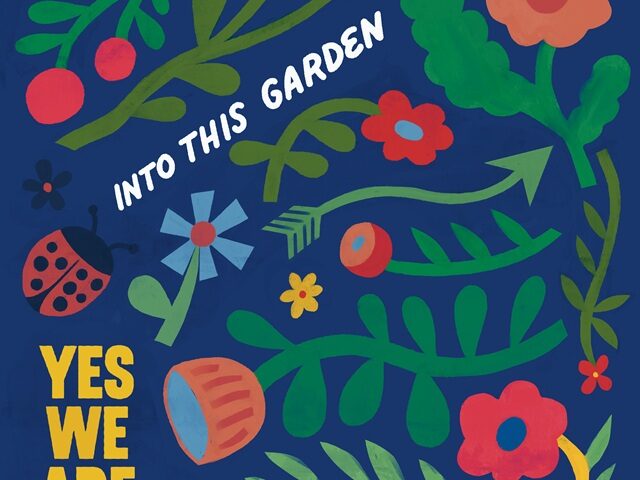Do you love music and want to know how music journalism has changed over time? This guide takes you through its journey from print magazines to the digital world.
Did you know that 68% of people who use social media mostly get some new music from short videos like Instagram Reels and TikTok, says Dack? All of this happened in this digital age, when traditional music journalism transformed into a new landscape.
Today, everything has changed from ink to earbuds, where artists directly communicate with their audience through social media platforms. So, despite publishing album reviews, it’s time to record a 30-second clip to level up your music game! This guide elaborates how social media has changed music journalism by transforming how writers tell stories.
Core Concepts of the Article:
- Music journalism has undergone an evolution from traditional print media to digital platforms.
- Social media allows direct artist and fan engagement and a digital news breakdown without using traditional ways.
- Real-time news and instant reviews have revolutionised the means of journalism.
- Viral trends, algorithms, and fans are more important in this digital age to set new trends.
- Although music journalists can face backlash on social media, they also offer new opportunities.
From Print to Digital: The Evolution of Music Journalism
Back in the days when music journalism revolved around print media, music writers used to share their thoughts in magazines. According to Number Analytics, the most common and dominant names include NME, Creem, Rolling Stone, and Billboard. They not only write about music but also cover interviews, concert reviews, and profiles.
However, with the advent of digital technology and the rise of social media platforms, the music industry also underwent evolution. Now, online music publications have taken the place of print media, where writers can freely submit their work as well as connect with their audience.
Among those music publishing platforms, Pitchfork and The Quietus are some rising stars. Anyone can write about music on these platforms, whether it is a blogger, musician, or independent writer. In this way, music magazines reached their end, and the emergence of modern digital music journalism came into being!
Traditional vs. Digital Music Journalism
Traditional Journalism:
AAFT states that traditional journalism is the oldest way of communication to its audience using TV, newspapers, magazines, or radio. It was the only source of music reporting for centuries. Journalists used to write music blogs and music columns to reflect what is inside the lives of their favourite pop stars.
Digital Music Journalism:
Everyone now accesses music journalism through social media, transforming it in the digital age. Today’s generation gets music news instantly from the Internet. Even music artists perform live streaming to directly communicate with their audience and provide the necessary information. Such platforms mainly include online streaming apps, social media platforms, music websites, blogs, and more.
However, if you still cannot meet the needs of modern journalism and need immediate help to complete your homework projects, don’t worry. Most of the students find it challenging at first to accept a change. So, in this regard, requesting music journalism assignment writing help, particularly from The Academic Papers UK, can be a great choice. They have UK-based writers to assist you in real time with the top-notch research material.
The Role of Social Media in Today’s Music Journalism
The use of social media has transformed everything, including our ways of living, how we interact with artists, and how new music gets discovered. Now, every released album becomes publicly available on streaming platforms, YouTube, and TikTok reels.
To understand the role of social media platforms on a larger scale in today’s modern music journalism, let’s have a look at these ways of changing the landscape:
1. Direct Artist–Fan Engagement
The time has changed. Now, artists are no longer waiting for an interview call to interact with their fans. With the availability of social media to everyone, hip hop stars directly communicate with their fans anytime and anywhere without any boundaries or restrictions. This change has also transformed the ways journalists report different stories.
The following are some ways in which this direct connection is changing journalism:
- Journalists now search for official artists’ accounts for updates and reports.
- Artists have freedom of speech, which allows them to interact directly with their fans.
- Now, musicians love to break the news of a new album release through Facebook, Instagram, Twitter, or TikTok.
- They also take part in live Q&A sessions and answer the most commonly asked questions of their fans.
2. Real-Time News and Instant Reviews
In traditional journalism, music lovers had to wait for days to read about their favourite music star and their newly published album reviews. On the other hand, in today’s music journalism, you can check out audience reactions instantly from the comments section. People share their reviews as soon as a song drops or a concert ends.
So, it has become a necessity for journalists to keep themselves updated with real-time news and reviews. Not only has this, but artists sometimes also shared live videos of their concerts to a wider audience through social media platforms. They also drop breaking news about themselves, which spreads in minutes to all the regions worldwide.
3. Viral Trends and Music Discoverability
Today, whatever goes viral is not coming from the radio or magazines. Even the users of traditional music journalism have become extinct. Now, within a few seconds, a meme, video, music, or other content goes viral globally through social media. This is the power of these emerging platforms that makes a small thing a global hit instantly.
Here is how the use of social media helps people discover music of their choice:
- Not only new songs, but also the older ones are going viral through TikTok videos.
- Remixes are also reshaping the music industry with a revolution.
- Some artists undergo viral challenges and make engaging music videos for the better performance of their albums.
- Journalists always look for the why behind the hit, along with exploring the viral songs.
4. Algorithm-Driven Music Promotion
Everything you see on social media platforms is algorithm-based. From the launch of music to promoting it and making it viral, algorithms are the real backstage stars. They shape everything according to the choices of music lovers. It also enhances the game of fame of some rising stars and makes unpredictable trends viral.
So, in this digital age of music journalism, you have to understand the influence of algorithms behind the success of music albums. It can also make an unknown artist viral if algorithms favour them. Understanding this, journalists now search for trending topics and for your options while using social media platforms.
5. Fan-Generated Content and Crowdsourced Trends
Fans are more important to musicians than journalists in this digital age of music journalism. They are not only listeners, but they have also become critics, reviewers, and trendsetters with the use of social media. Even the students of today prefer to listen to music as a fun activity when bored in class.
So, whether it is about publishing a music video on YouTube or releasing an album on Spotify, journalists also use these digital platforms for effective reporting. As this is an era of prioritising fans’ choices, our pop stars also care about what their audience demands.
Challenges for Traditional Music Journalists
The traditional types of music journalists face many challenges when they shift to social media. The following are some challenges that they often face:
- Depth vs. speed: In the comparison of speed vs. depth, social platforms always prefer clarity and simplicity over depth.
- Filter bubbles: The algorithms of social media restrict exposure level, which narrows the scope of research in data analysis.
- Fan backlash: Sometimes, the famous or well-known music journalist may face online trolling, as everyone has the right to comment.
- Content overload: Publishing a large volume of content at once can reduce its uniqueness, making it harder to manage and differentiate. You may also lose your ideas or opinions in this way.
New Opportunities for Music Journalism
Music journalists often undergo many different challenges in their careers, mostly due to the rise of digital platforms. However, there are also great opportunities for them, which are related to the online transformation of music journalism:
- Multimedia storytelling: Nowadays, there are many social platforms to improve music journalism, such as TikTok, Instagram Live, and podcasts.
- Direct audience building: Music journalists can easily become a brand by using the free channels to grow their own. They can easily build their audience through these accessible channels or platforms.
- Collaborative content: By using these platforms, the music journals work together with fans and critics to make stories in real time.
The Future of Music Journalism in a Social-Driven World
As per Medium, here are several trends in the music industry that have emerged while looking for the future of music journalism in this digital age:
- Engaging stories: In the future, you can anticipate interactive music evaluations or virtual reality performance reviews.
- Newsfluencers rising: The newsfluencers are TikTokers and Substack-type writers who can provide you with current, relevant opinions. Their views can challenge the opinions of traditional media.
- Data-driven storytelling: In the future, journalists will also be able to assess trends in real time with the help of social media analytics.
- Subscription and patronage models: The website, like Patreon, is very helpful for specialised music journalists. They can directly finance their work through this subscription.
When to Consider Professional Assignment Writing Services
In today’s digital journalism, students need to research their topic from reliable sources thoroughly. The first difficulty comes in finding the right sources of information. Secondly, they need updated and accurate news as soon as it is published.
Thirdly, aspiring music journalists need proper writing skills to write polished assignments that can truly stand out. In such circumstances, managing everything with coursework and exams becomes quite difficult for journalism students.
Top Resources to Get Assignment Writing Help
Here is a list of the top three assignment writing platforms you can consider for your next music journalism assignment:
Benefits of Expert’s Assistance:
Professional writers not only assist you in finding reliable information but also in writing your tasks efficiently. They also offer clear instructions and build essential skills needed for effective journalism.
Along with that, such experts have access to various reliable journals and academic databases. It helps you to research effectively and get a deeper side of the story. So, whenever you need external support for your music journalism, you can count on such reliable platforms for ultimate success!
Tips to Find the Right Assignment Writing Service
Finding the right assignment writing agency can make a big difference in your academic performance. But that is not as easy as it seems. To help you find the perfect match, here are some tips you must consider:
- Check the expertise of their writers to see if they are qualified in your field.
- Look for reviews on the different platforms, such as Trustpilot, Sitejabber, etc.
- Review their writing sample to assess the quality of their assignments.
- Choose a service that meets deadlines.
- The service should protect your personal and academic data.
- A transparent money-back policy that shows trust and accountability.
FAQs
What is music journalism?
The Knowledge Academy states that music journalism is all about writing about the main subject of music. This includes the evaluation of records and live performances, as well as covering business news. It also offers opinions on historical, cultural, and artistic trends.
What skills are needed for music journalism?
You should have some skills that are necessary for music journalism, like outstanding research ability, a thorough understanding of music, and great writing ability. There are some additional important skills that you must have, such as interviewing, critical thinking, networking, and having a solid knowledge of social and digital media.
What does a music journalist do?
Berklee states that the main role of a music journalist is to write music-related articles on many digital platforms, such as TikTok and Instagram. The journalist may include many roles, like writing articles, doing interviews, making videos, or making podcasts. Moreover, they can help on the business side of the music industry, listen to new albums, and attend the press conferences.
What qualifications do you need for music journalism?
You may need to build an effective online profile, as there are no hard requirements or qualifications for journalism. You may need a degree in English, journalism, or a similar field, but sometimes a passion, writing abilities, and a strong work ethic are more beneficial than these formal degrees.
How to start a career in music journalism?
If you want to start your career, make your presence, or acquire skills, you have to submit your work to low-paying or free publications. Then you must build your connections at local performances and on social media. You will grow your career if you have a unique voice and an impressive online profile.
Which degree is best for journalism?
The journalism degree itself is typically the simplest and most direct path to becoming a journalist, as it can teach you critical skills like ethics, writing, and media laws.
But it includes some beneficial degrees, such as communications, media studies, or English. After all, a well-rounded education and real-world experience are more useful than a specific degree title.
Conclusion
No doubt, the digital revolution has transformed the ways people think and perform in the music industry. Now, very few music lovers are still rooted in music magazines, while the majority has moved to social media platforms for music journalism. Print features of music magazines have transformed into viral short videos that are not only accessible but widely popular among people.
Observing such a huge change, journalists and students are trying to balance everything with integrity. In addition to this, if you are a student exploring music journalism and the impact of streaming for your assignment, you can seek assignment help for additional support. The professional writers of The Academic Papers UK provide ultimate assistance to students struggling with their academic tasks and level up their writing with exceptional skills.





